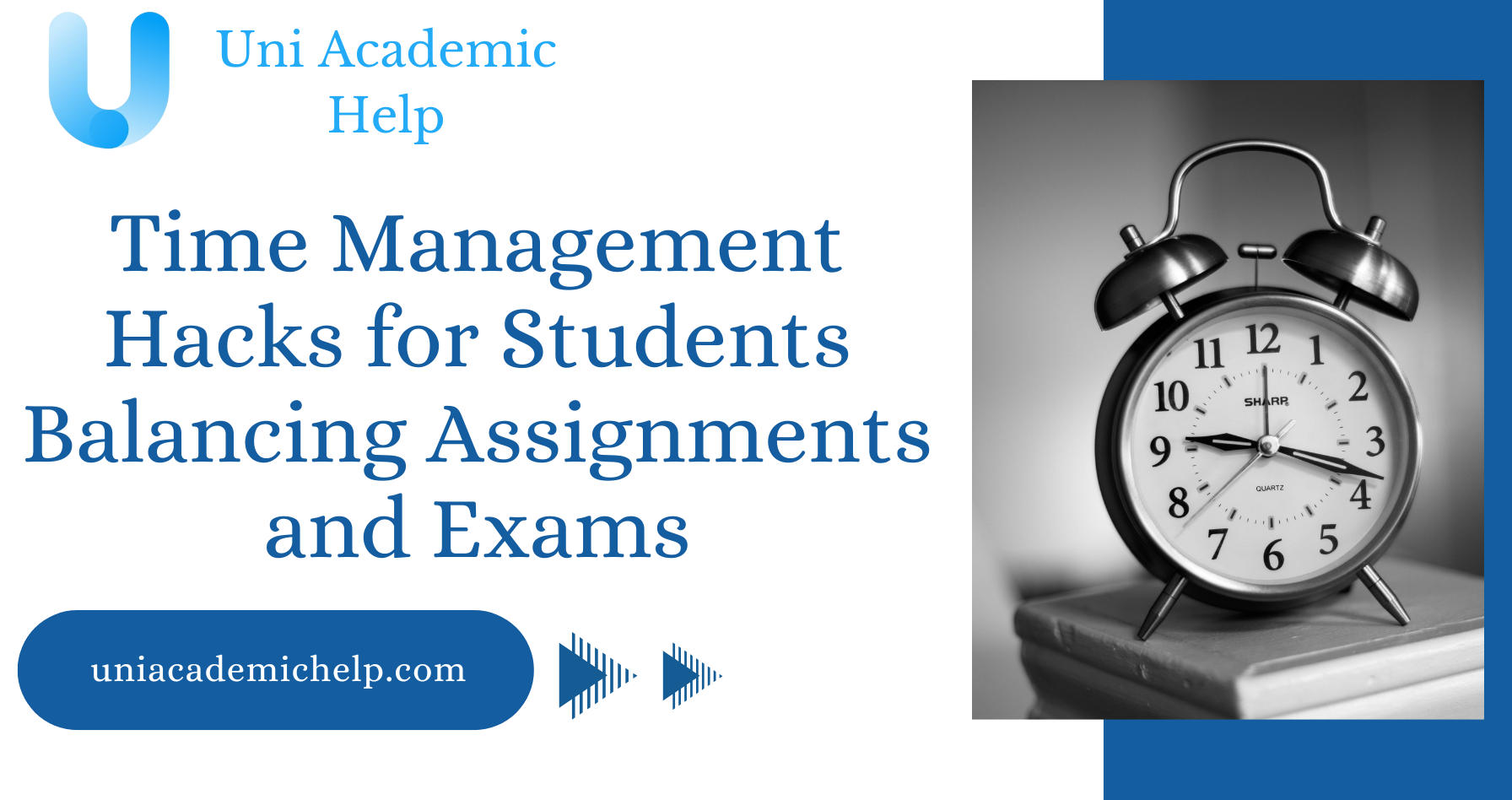1. Prioritize Tasks with a To-Do List
Creating a daily or weekly to-do list is a simple yet effective way to organize your tasks. Start by listing all your assignments, exam preparation, and other responsibilities. Prioritize these tasks based on urgency and importance. For example:
-
High Priority: Upcoming assignment deadlines, major exams.
-
Medium Priority: Revision sessions, practice tests.
-
Low Priority: Group study sessions, optional readings.
Use productivity tools like Trello, Todoist, or even a traditional planner to keep track of your tasks. This structured approach helps ensure you never miss a deadline and stay focused on what truly matters.
2. Break Down Large Tasks into Manageable Chunks
Facing an overwhelming assignment or a massive syllabus can be daunting. Break these larger tasks into smaller, more manageable chunks. For example:
-
Instead of tackling a 3,000-word essay in one go, aim to complete 500 words daily.
-
Divide your syllabus into topics and allocate specific days for each.
This approach reduces stress and makes the workload feel achievable. It also helps in maintaining consistent progress.
3. Use the Pomodoro Technique
The Pomodoro Technique is a proven method to enhance productivity. It involves working for 25 minutes, followed by a 5-minute break. After four such cycles, take a longer break of 15-30 minutes. This technique helps you stay focused while preventing burnout.
Here’s how to implement it:
-
Set a timer for 25 minutes and work on a single task.
-
Take a short break to relax or stretch.
-
Repeat the cycle and reward yourself after completing four rounds.
Apps like Focus Booster and TomatoTimer can make this method even easier to follow.
4. Plan Ahead with a Study Schedule
A well-planned study schedule is essential for managing assignments and exams effectively. Start by assessing your deadlines and exam dates. Then, allocate specific time slots for each activity. Make sure to:
-
Reserve mornings for tasks requiring high focus, like studying complex topics.
-
Dedicate evenings to reviewing notes or completing assignments.
-
Include buffer times for unexpected delays or revisions.
Consistency is key. Stick to your schedule as much as possible to build a productive routine.
5. Learn to Say No
While social activities and extracurricular commitments are important, they can sometimes interfere with your academic priorities. Learn to say no to activities that don’t align with your immediate goals. Politely declining unnecessary engagements ensures you have more time to focus on assignments and exams.
6. Utilize Technology to Your Advantage
Numerous tools and apps are available to streamline your academic efforts. Some popular options include:
-
Google Calendar: Schedule and set reminders for deadlines and study sessions.
-
Grammarly: Enhance your writing for assignments.
-
Quizlet: Create flashcards for quick revision.
-
Turnitin: Check your work for plagiarism before submission.
By integrating these tools into your routine, you can save time and improve the quality of your work.
7. Master the Art of Multitasking
While multitasking can sometimes reduce focus, there are situations where it can be beneficial. For example:
-
Listen to recorded lectures while commuting.
-
Review flashcards during breaks between classes.
-
Brainstorm assignment ideas while waiting in queues.
The key is to combine activities that don’t require equal levels of concentration.
8. Take Care of Your Health
Your physical and mental well-being play a significant role in academic success. Neglecting your health can lead to fatigue and reduced productivity. Follow these tips to stay healthy:
-
Eat Nutritious Meals: Opt for brain-boosting foods like nuts, fruits, and whole grains.
-
Exercise Regularly: Even a 15-minute walk can help improve focus.
-
Get Adequate Sleep: Aim for 7-8 hours of quality sleep to recharge your mind.
A healthy lifestyle ensures you have the energy and focus needed to tackle your academic responsibilities.
9. Avoid Procrastination
Procrastination is a common challenge for students. To overcome it:
-
Set specific deadlines for each task.
-
Start with the easiest or most interesting tasks to build momentum.
-
Use apps like Forest or Freedom to block distracting websites during study sessions.
Taking small steps consistently is the best way to combat procrastination.
10. Seek Help When Needed
There’s no shame in asking for help when you’re struggling to manage assignments and exams. At UAH, we offer professional academic support to lighten your workload. Whether it’s assistance with research, writing, or editing, our experts are here to ensure you succeed without compromising your mental well-being.
11. Reward Yourself
Motivate yourself by setting rewards for completing tasks. For example:
-
Take a short break after finishing an assignment section.
-
Treat yourself to your favorite snack after a productive study session.
-
Plan a fun activity after meeting major deadlines.
Rewards reinforce positive habits and make the process enjoyable.
Final Thoughts
Balancing assignments and exams requires planning, discipline, and a proactive approach. By implementing these time management hacks, you can navigate your academic journey more effectively and with less stress. Remember, you’re not alone. UAH is here to support you with top-notch academic assistance, ensuring your success every step of the way.
Start applying these tips today, and experience the difference in your productivity and academic performance!






.jpg)